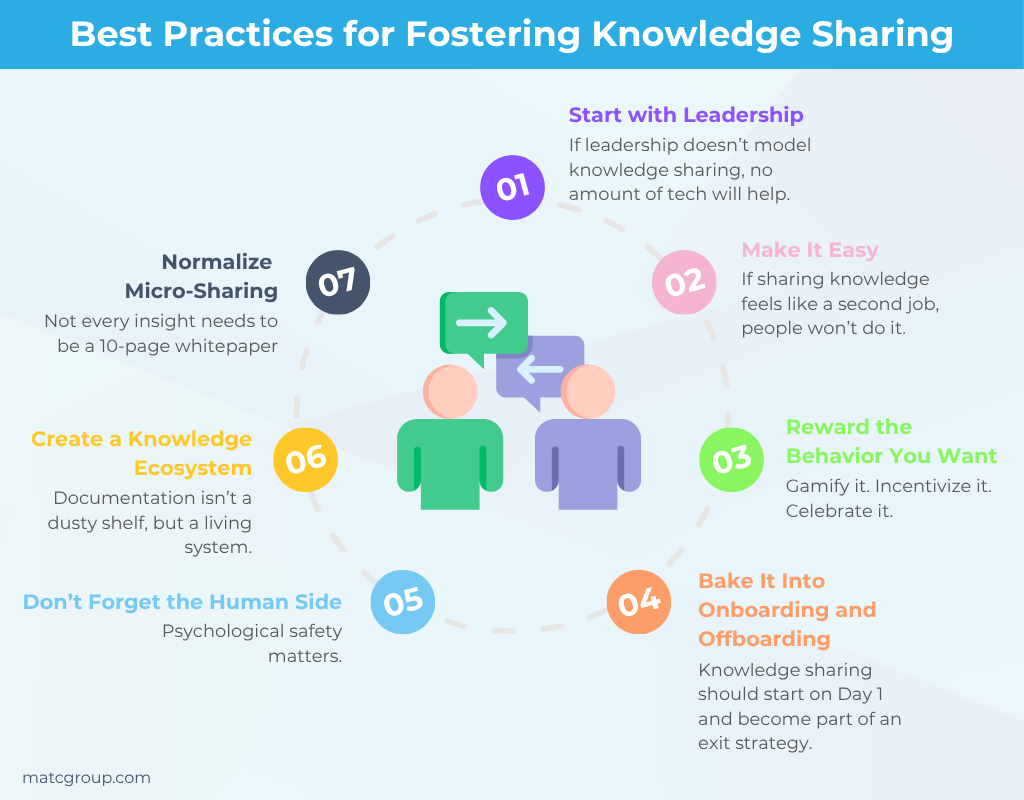- +1 (267) 368-7090
- contact@matcgroup.com
-
53 Knightsbridge Rd,
STE 216
Piscataway, NJ 08854.
Imagine if everyone on your team worked with the collective brainpower of the whole organization. No duplicated efforts, no reinventing the wheel, no digging through outdated emails to find “that one spreadsheet.” That’s the power of a true knowledge-sharing culture. It’s not just a nice-to-have, it’s a competitive advantage.
But here’s the catch: knowledge hoarding is real. Whether it’s job security jitters, siloed departments, or just the chaos of the daily grind, valuable know-how often gets trapped in inboxes or, worse, in someone’s head.
Creating a culture of knowledge sharing doesn’t happen by accident. It takes intention, infrastructure, and a few nudges from leadership. Let’s build that culture without making it feel like another corporate checkbox.
When teams share what they know, organizations:
In short: knowledge sharing isn’t extra work, but the kind of work that makes everything else more efficient.

If leadership doesn’t model knowledge sharing, no number of wikis or Slack channels will help.
A little, “Thanks for the playbook, Alex—it saved us hours,” goes a long way.
If sharing knowledge feels like a second job, people won’t do it.
Gamify it. Incentivize it. Celebrate it.
Knowledge sharing should be seen as impact, not “extra.”
Knowledge sharing should start on Day 1 and become a core part of an exit strategy.
Psychological safety matters. People share more when they:
Foster a “no dumb questions” environment. Encourage curiosity. Thank people who take the time to answer.
Documentation isn’t a dusty shelf, but a living system.
If a doc hasn’t been updated since 2020, is it really sharing or just digital archaeology?
Not every insight needs to be a 10-page whitepaper.
These small shares often become the seeds of bigger documentation later.
Don’t look at knowledge sharing as forcing people to write more documents, but about helping everyone do better work, faster. When organizations value transparency, equip people with the right tools, and reward generous knowledge habits, the results ripple across every department.
Because at the end of the day, no one wants to dig through 37 Slack threads when a well-named doc could’ve done the trick.
Burnout, Meet Your Match: How Knowledge Management Keeps Teams Sane
How to Capture Institutional Knowledge Before it Walks Out the Door
Resilience in the Workplace: How Knowledge Management Can Help Organizations Adapt to Uncertainty